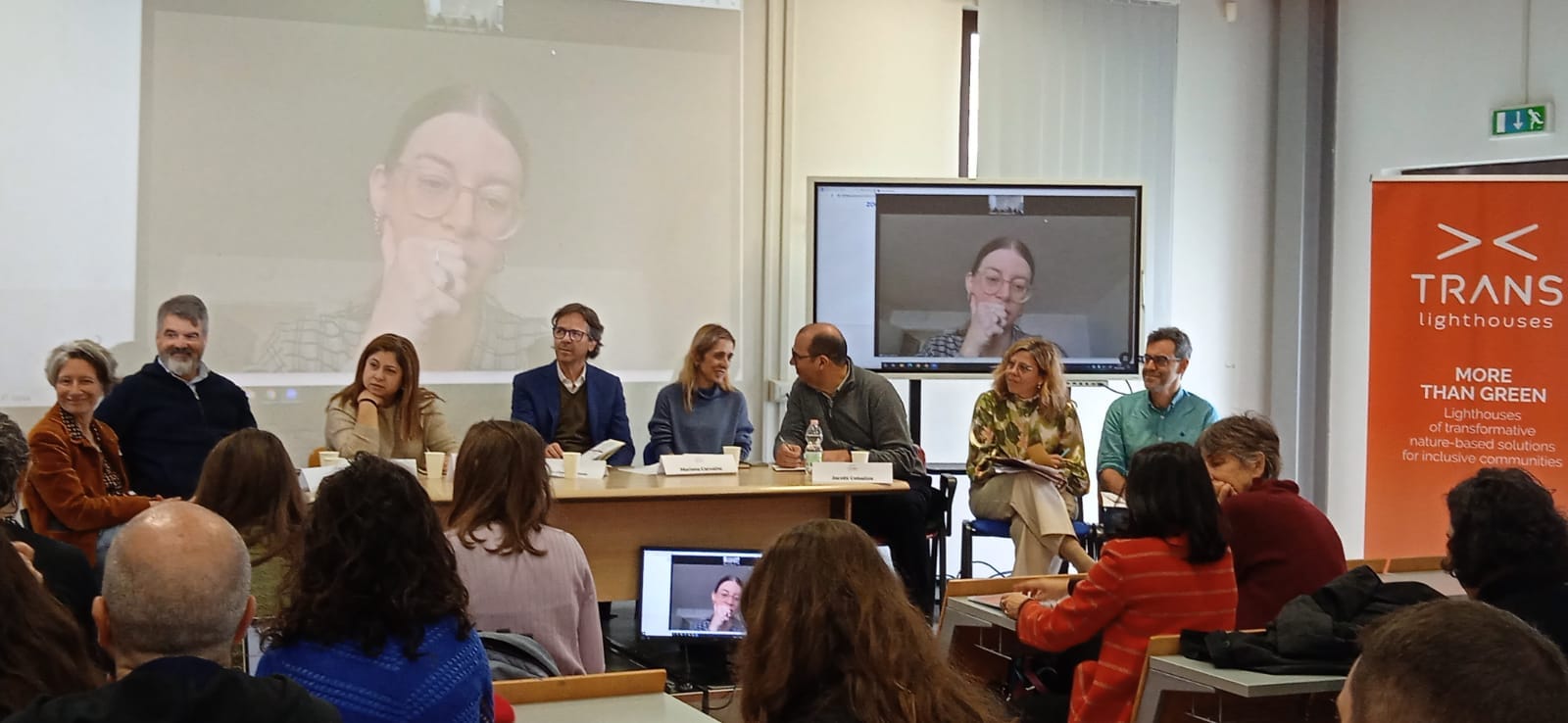Regional Focus: Europe
Time: 2023-2026
ICLD is part of the consortium of TRANS-Lighthouses – a Horizon Europe research and innovation project supporting inclusive, democratic, and transformative nature-based solutions (NBS). Through a network of pilot sites and assessment cases, TRANS-Lighthouses explores how participatory practices can enhance the design, governance, and impact of NBS. The project adopts a transdisciplinary and context-sensitive approach, working with local governments, scientific institutions, civil society, and communities to co-produce practical tools, policy recommendations, and learning formats for use across Europe and beyond.
Project website: https://trans-lighthouses.eu/en/about
Abstract:
TRANS-lighthouses aims to gather evidence on material and immaterial results of NBS in order to rethink and reframe the main elements that compose the complexity of creating social and ecologically just NBS. More than a driving process, the collaborative work on planning and making NBS functional might stimulate a more concerted response towards environmental and climate crises, increasing the commitment of different stakeholders and upscaling their own spheres of action. TRANS-lighthouses adopts a nonlinear perspective and opens up space for the adoption of a fluid and organic position that is able to integrate the diversity of subjects, institutions, knowledge(s), practices and values. TRANS-lighthouses’ ambition is to become a European reference on sociopolitical challenges for supporting NBS projects and solutions. The socio-politics dimension will be part of the public agenda for NBS towards SYSTEMIC CHANGE. This ambition will be achieved by assessing the benefits and limitations of NBS co-creation that have already been implemented and designed, tested and disseminated economically and socially fairer guidelines for NBS implementation. For this purpose, the project will conduct a thorough assessment, grounded on a transdisciplinary approach and critical analysis. Constituting a well-oiled network of citizens, local governments, scientific institutions and civil society-based partners which acts across borders, disciplines and sectors, TRANS-lighthouses will lead research on activities aiming to implement socioeconomic and political changes capable of enabling pathways for a socially and ecologically just implementation of NBS. TRANS-lighthouses integrates a network of NBS lighthouses for urban, rural, coastal and forested areas in 10 EU countries and 6 non-EU.
Expected output: designing economically and socially fairer guidelines for NBS implementation.
TRANS-Lighthouses is an acronym:
T – Transformative
R – Reflexive
A – Activist
N – Networked
S – Solutions
Lighthouses – shedding light on just and equitable practices to guide the way forwards

ICLD’s Role
ICLD leads Task 3.6 of the project, which focuses on strengthening democratic governance of NBS through engagement with elected representatives and municipal actors. As part of this task, ICLD:
- Coordinates Local Democracy Labs with pilot municipalities to address governance dilemmas through structured dialogues between local politicians and researchers.
- Organizes roundtables and peer learning workshops with elected representatives across the pilot sites to support shared learning and develop governance strategies tailored to political realities.
- Produces ten knowledge products in collaboration with pilot sites and consortium members:
- Four policy briefs on topics such as inclusive participation, governance indicators, advisory councils, and depoliticising NBS;
- Four learning cases based on real-world governance dilemmas in the assessment and pilot cases;
- Two animated videos designed for broader dissemination and use in training.
Partners
- Centre for Social Studies (CES) Portugal
- Roskilde University (RUC) Denmark
- Technical University of Munich (TUM) Germany
- The Cyprus Institute (CyI) Cyprus
- Centre National de la Recherche Scientifique (CNRS) France
- Nantes Université (NU) (Affiliated to CNRS) France
- Université Gustave Eiffel (uni. Eiffel) (Affiliated to CNRS) France
- University of Louvain (UCLouvain) Belgium
- Sapienza, Università di Roma (Sapienza) Italy
- University of Extremadura (UEx) Spain
- Universidade dos Açores (UAc) Portugal
- ATHENA Research Centre (ARC) Greece
- Economias BioRegionales (EBR) Spain
- Município de Estarreja (CME) Portugal
- Município de Barcelos (CMB) Portugal
- Ville de Bruxelles – Stad Brussel (Brussels) Belgium
- Swedish International Centre for Local Democracy (ICLD) Sweden
- Associazione Jangada Onlus (Jangada) Italy
- Cooperativa de Incubação de Iniciativas de Economia Solidária (Kairós) Portugal
Associated partners
- Universidad de Chile Chile
- Universidad de Buenos Aires Argentina
- Universidade de Brasília Brazil
- Prefeitura de São Paulo Brazil
- Tata Institute of social sciences India
- University of Illinois USA
- University of Dar es Salaam Tanzania
- Polycom Development Project, Kenya
- Universidade Estadual de Ponta Grossa, Brazil
This is an EU-funded project under call HORIZON-CL6-2022-COMMUNITIES-01 (Resilient, inclusive, healthy and green rural, coastal and urban communities)


